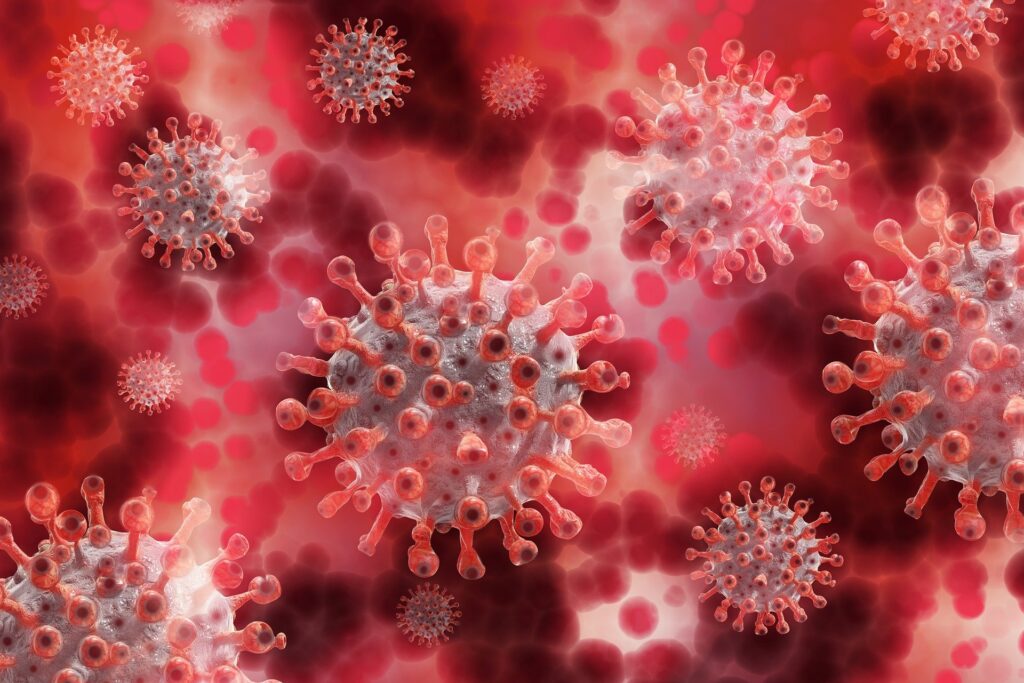AACC: Statement of the Faith & Science in Conversation Conference on the COVID-19 Pandemic
Preamble
The All African Conference of Churches (AACC) together with the African Council of Religious Leaders – Religions for Peace (ACRL-RfP) virtually convened the Faith and Science in Conversation Conference on the COVID-19 Pandemic.
The Faith & Science in Conversation Conference was held on the 30th and 31st March 2021, bringing together Multi-faith Religious Leaders, individuals of diverse religious/faith-based organizations and institutions, Faith-based Scholars/Theologians, Scientists and Technical experts and other partners from UNICEF and WHO Africa Regional offices and stakeholders from other parts of the world. More than 170 participants from Anglophone and Francophone Africa converged for the two days of the conference.
Acknowledging our responsibility to respect and protect life as a gift from God,
Guided by our respective faith teachings and practices, we have not relented in imagining strategies and approaches that will significantly contribute to responding to the pandemic. Thus, in collaboration with partners, we continue to support initiatives that enhance progressive systematic engagement with faith communities and actors in Africa to respond to COVID-19;
Noting that COVID-19 continues to cause disruptions in the way communities and congregations conduct their activities and actions and that the strict adherence to the guidelines in prevention and management has made life difficult and sometimes impossible to cope with;
Utilizing science as a gift from God and appreciating the scientific discoveries and interrogations of COVID-19 from its cause, transmission, prevention and management, we applaud and appreciate the gift of knowledge to scientists in their quest to find a cure and vaccine at a rather fast pace;
Valuing health professional workers and other stakeholders in the frontlines who risk their lives providing support and essential services to save others;
Seeing the destructive impact of COVID-19 on our lives and our well-being, we urge religious leaders in Africa to:
i. Communicate factually, effectively and consistently using knowledge and information available from the World Health Organization sources which provide accurate and life-saving information on COVID-19 prevention, management and control and inform the strategies adopted by various Ministries of Health and other local agencies of governments.
ii. Continue to provide hope by promoting acts of solidarity, compassion and care to those impacted by COVID-19.
iii. Realise that the COVID-19 pandemic is far from over and many African countries are now facing the third wave and its severe effects. And that the virus does not discriminate based on religion, and particularly threatens the poor and most vulnerable among us.
iv. Continue reminding our members to observe the preventive measures, that is, frequent washing of hands with soap under running water, wearing of face mask, maintaining physical distancing and for now, avoid congregational gatherings in order to protect our families and communities.
v. Advocate for equitable access to and availability of vaccines, and support governments’ plans to vaccinate all our people. Let us urge our congregations to take the vaccine when it is offered to help in preventing the spread of COVID-19. The vaccines are safe and taking them is how we protect our children, families and communities.
- Let us be the first ones to receive the vaccine in public and encourage our congregants and the wider population to take the vaccines. This will help instill confidence in our people on the safety and efficacy of the vaccines as the best way to prevent the spread of COVID-19;
- Offer our facilities and institutions for the vaccination campaigns and open our doors to the government and other agencies who may need to use our institutions to reach out to our communities and offer them the needed tests, vaccines and other support.
vi. Continue promoting acts of compassion that help mitigate the humanitarian impact of COVID-19 on our communities while observing the safety guidelines. We should help identify, protect and safely mobilise resources (food, water, medicines, masks, vaccines) to fulfil the human and practical rights of the frontline health workers, police, vulnerable families and the poor, especially those who are adversely affected or have been distressed by the tough measures being adopted.
vii. Continue consulting and gathering faith-based practitioners to help interpret and reinforce the guidelines and observance of directives with a human face while also engaging the State to be more humane and considerate of the contexts when they make decisions.
viii. Encourage multi-faith dialogue and actions for the continued provision of spiritual assistance to children, families, persons with disability, the ageing population and those in need of care.
ix. Reach out to and persuade governments, especially in countries that are still skeptical about the COVID-19 pandemic, to join the global community to promote adoption of prevention guidelines and vaccination;
x. Continue working with Africa-based scholars and theologians to dialogue on and interpret the emerging realities to suit the African context and promote Africa-based solutions which include mobilizing the rich resources in Africa to help in developing capacity for response and action in Africa.
xi. Encourage people to safely come closer to God in worship and prayer.
Let us join in prayer for God’s love and compassion, especially for all those impacted including the health workers and other officials at the frontline who help us face these daily challenges.

